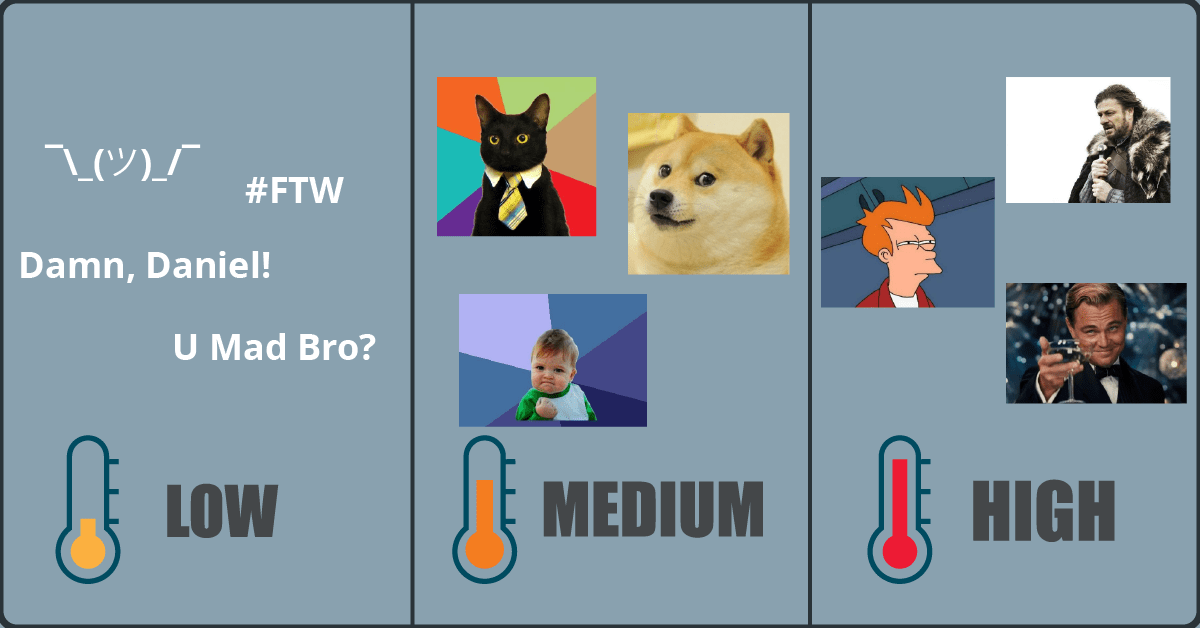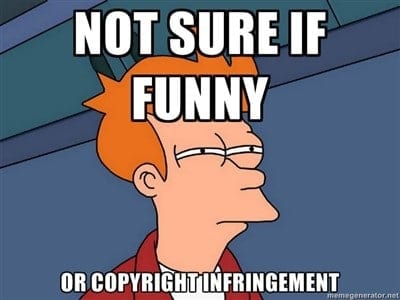
With the world of social media marketing being dominated by images, what do you (or your campground or RV park) have to worry about when it comes to copyright online?
Have you ever wondered why the online world is so bright and colorful? Images and videos effectively capture our attention when faced with a new product or service. Think about it—when was the last time you purchased something based on its description alone?
Sharing Images on Social Media
Visuals are huge in the social media world, particularly for businesses, and that includes your campground or RV park. Here are some examples that illustrate (get it?) the power of visuals on social media:
- On average, content with relevant images has 94% more total views than content without (Jeff Bullas)
- Compared to other types of content, visual content is 40x more likely to be shared on social media (Ethos3)
- Facebook posts with images can receive 2.3x more engagement than text posts (BuzzSumo)
- Tweets with images can earn 150% more retweets compared to tweets without (Hubspot)
Social media is the driving force behind the unfathomable amount of photos users share online every second of every day. According to one estimate, the world is on track to share over 2.5 trillion photos online by the end of this year!
If you’re active on social media, you’re no stranger to shared content. From watching the latest viral videos to uploading a few too many photos from your recent vacation, the act of engaging in or sharing online content has become an essential ritual in our social lives. We do it for the “likes,” the “gram,” the “retweets,” or the “shares,” because at the end of the day, sharing is caring.
Social Media Copyright Risks
Sharing content online is a process that we no longer think twice about. That’s where the danger lies; you can receive a cease and desist for using an image without permission!
Copyright online and fair use on social media are both areas of law that have yet to become clearly defined, but whether you’re marketing on behalf of an organization, or just uploading your own original content for fun, it’s important to understand the basics.
***This post focuses on copyright laws as they pertain to Canada and the United States.
What is Copyright?
Hang on to your seats—it’s about to get legal.
Merriam-Webster’s Learner’s Dictionary defines copyright as: “the exclusive legal right to reproduce, publish, sell, or distribute the matter and form of something (as a literary, musical, or artistic work).”
Copyright serves to strike a balance between protecting the author of a piece of work and serving the public interest.
Copyright laws in Canada are established and governed through the Copyright Act of Canada, which was most recently amended in 2012. To put it broadly, this act protects original literary, dramatic, musical, and artistic works. This is very similar to copyright law in the United States, which protects all original “works of authorship.” Another noteworthy similarity between the two countries is that once you have created an original work (e.g., writing a story, painting a picture, taking a photo, etc.), published or unpublished, your work will be protected under copyright law. In most cases, formally registering a copyright for your work is not really necessary to receive protection (Gowling Wig).
Copyright offers the owner exclusive rights over their work. Copyright owners can:
- Reproduce the copyrighted work
- Create derivative works based on the copyrighted work
- Distribute copies of the copyrighted work to the public by sale, transfer of ownership, rental, lease, or lending
- Perform and/or display the copyrighted work publicly (copyright.gov)
While copyright offers the author a considerable amount of control over their work, there are a few exceptions to the Canadian Copyright Act:
- Copyright can expire, at which point the work becomes public domain and free for use. In Canada, copyright usually expires 50 years after the author dies.
- Copyright may not apply if an ‘insubstantial portion of a work’ is used. An example of this would be a short quote.
- Work can be used for the purposes of “research, private study, criticism or review, news reporting, education, parody or satire.” Works used for these purposes fall under fair use, which is legal use in most cases (Brock University)
Interestingly enough, copyright is determined on a case-by-case basis, which makes it difficult to identify any clear-cut examples of infringement that could be applied to other cases seen in social media. However, the Copyright Act of Canada does become amended from time to time to reflect new use cases.

For example, a new copyright exception was introduced in 2012 called the “mash-up exception,” or the “YouTube exception.” This provision allows people to use existing copyrighted content for non-commercial purposes if it is properly sourced and repurposed as a new work. There are limits to this exception, but the overall goal of the provision is to promote the creation and sharing of new content on social media (Oyen Wiggs Green & Mutala LLP).
Creative Commons and Free Use
On the other end of the spectrum, “creative commons” work is always free to use. Creative commons dedication means that an author has dedicated their original work to the public domain, waiving all rights to their work worldwide under copyright law.
This work is free to “copy, modify, distribute and perform, even for commercial purposes, all without asking permission” (Creative Commons). Sound familiar? Sites like Pixabay or Flickr host photos that are released under Creative Commons! These photos require no attribution (credit to the author or source when being used), and they are free to use!
Internet Memes and Copyright Online
Memes are where copyright can get tricky.
There are so many kinds of memes that may or may not infringe copyright online that lumping them all into one category doesn’t work. Honestly, there is so much to cover in this category that it’s hard to touch on everything, so here is a quick overview.
Types of Memes
Memes can range from the popular form of “image macros,” too silly sentences repeated across the web. Catchphrases, hashtags and other word-based memes have no real copyright issue. It’s the visual and macro image memes that may pose a problem when it comes to copyright online. Specifically, image macros that depict copyrighted characters and productions.

Pop Culture Memes
Let’s say, for simplicity’s sake, that most memes are fair use. No one is going to come after you for throwing a “damn, Daniel!” into one of your Facebook posts. The memes that may pose an issue are those that pull images from pop culture, like Futurama Fry or Boromir’s “one does not simply” meme. These character stills are pulled from pop culture media and turned into memes, yet the characters belong to a specific brand or company.
Could using a pop culture meme that depicts a copyrighted work or character result in a lawsuit? Yes.
Is it likely to? No.
However, just because JRR Tolkien’s estate is not likely to come after you for retweeting that Boromir meme, that doesn’t mean it’s not copyright infringement. Even reposting the Socially Awkward Penguin can land you in copyright trouble.
When it comes to commercial use of memes, it’s good to air on the side of caution, and avoid posting pop culture memes that clearly depict copyrighted works.
Memes in Social Advertising
Using memes for social advertising is the surest way to cause problems with copyright online when it comes to sharing memes. Posting a meme is relatively harmless, but using it in advertising is a whole different story.
Fair use does not protect advertising, and so any direct promotion of your company/brand with the use of memes, or using memes for profit, can get you legal heat.
If you’re thinking “that’s silly, who would come after me for selling a t-shirt with a picture of a particularly grumpy cat?” remember that Grumpy Cat has a company, and it’s one that’s ready to protect its property (which is, weirdly enough, a mean looking cat).
Rule of Thumb for Copyright Online
Unfortunately, the provisions of fair use and copyright online are often left up to interpretation. A good rule of thumb is to assume that all images and videos found online are protected by copyright unless explicitly expressed as being free to use by the owner. Ultimately, it’s up to the author of the work to enforce copyright law if they find that their work is being used without permission.

Source: Arther Law, Futurama
The next time you decide to use any content that isn’t yours, ask yourself:
1) Do I have permission to use this image (or is it free to use)?
2) If I don’t have permission, does my usage fall under “fair use”?
3) Is using this content worth the potential legal consequences?
It will be interesting to see how copyright laws and content sharing practices will change over time in response to the evolution of social media trends. For now, just remember—a picture may be worth a thousand words, but it may cost you a lot more if used illegally and without permission.




